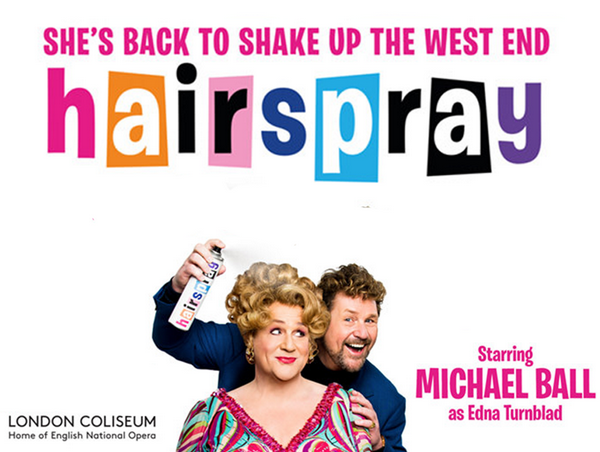Today, for the first time since the mid-December lockdown brought the shutters down on most forms of social interaction in public, including the closure of non-essential shops, pubs, restaurants, theatres, cinemas, museums and galleries, Britain is beginning the process of edging out of those some of those restrictions.
As of today, we can now gather in small groups of up to six people, or two households, in outdoor settings, both public and private. And outdoor sports facilities — tennis, basketball, golf and swimming — will be allowed.
Of course, this doesn’t bring theatre back. The “not before” date of May 17 still stands for the possible resumption of live performances, to socially distanced audiences as was allowed last November and December; with a “not before” date of June 21 originally announced for the resumption of performances at full capacity.
The government has only committed to formally announcing the confirmation of those dates a week away from when they are due to take effect; but re-opening a theatre show is not akin to re-opening a shop but requires a lot more preparation to do so, especially after what will by then be another full five month shutdown. Theatre producers who are eager to have their shows playing again have had to announce re-opening dates, start taking bookings again, re-engage their casts and crew, all the while hoping for the best that those dates will indeed be met.

And that’s without reckoning on the added complexities of opening a brand-new show that is yet to be rehearsed in such an uncertain environment. No wonder the last few weeks have been a car crash of shows announcing new delays to their opening schedules, from Anything Goes at the Barbican (starring Megan Mullaly and Robert Lindsay, pictured below) and Back to the Future (pictured above, whose out-of-town try-out in Manchester just ahead of the first lockdown a year ago was brought to a premature close then) to Andrew Lloyd Webber’s new musical Cinderella and the revival of Hairspray at the London Coliseum.

I’ve been so keen to see each of them that I’m not waiting for my press tickets for the press nights but long ago bought tickets for an earlier preview of each as well (I won’t be reviewing those performances, obviously). But it does mean that I’ve had each of those bookings moved to another date at least once already, and sometimes twice or three times; as well as tickets I bought for The Show Must Go On, originally for the Palace Theatre last December, and now finally supposed to be happening in early June.

For some of them, there’s an added complication: Hairspray (pictured above) is finally set to begin performances on June 22, but the first four weeks of performances, up to July 18, are designated as set to play to socially distanced audiences with reduced capacity, so I’ve not been booked into another performance yet but am being invited to re-book during a priority booking window that is being reserved for existing ticket holders only, and given a voucher that will allow me to rebook for tickets at the same value for when I now choose to go. (I admire their sense of caution — although the “not before” date for full houses is June 20, they are erring on the side of caution already in not actually opening the entire house to bookings till a month later).
These frustrations are, of course, entirely unavoidable; and to give credit to each of the outlets I booked the tickets through, whether it was the venue’s own in-house ticketing service or a third-party supplier like London Theatre Direct for Anything Goes, have been both clear and responsive in their communications with me.
But according to a story in The Sunday Times yesterday, this has not always been the case: as Louise Eccles reported in the paper’s business pages,
“In February the government said theatres and concert halls would not reopen before May 17, but tickets for West End shows and other performances in April and early May were sold for weeks, with no warning to customers that the events could not take place. Experts said it was potentially a breach of consumer law.”
Amongst the shows for which tickets continued to be sold were performances by Aled Jones (between May 1 and 15, via Ticketmaster) and for Strictly Come Dancing: the Professionals (between May 7 and 16, via Ticketmaster and LW Theatres).
Which? magazine’s Adam French comments in the story:
“At best this is pretty amateur and a massive oversight. At worse it is potentially a breach of the consumer protection from unfair trading regulations if thy are selling something they know they can’t fulfil.”
Ticketmaster are quoted defending the practice saying it was unable to take events off sale without the organisers’ instructions.
However, I fear more trouble on the horizon: what if the June 20 date for the lifting of all restrictions is not actually realised, and the government continues instead to insist on performances taking place only under socially distanced conditions?
As theatres have long insisted, performing to smaller audiences is not economically viable; but Hairspray also can’t afford a further delay on its schedule, as they will also need to complete their planned run at the London Coliseum before the theatre has to be handed back to the English National Opera. The producers will be relying on the added seating capacity they’re hoping for in full from July to cover their costs.
Much the same thing was said at the Globe’s press conference last week, where performances will begin to socially distanced audiences (including, for the first time, audiences seated in the yard, instead of standing as usual) from May 19 — but executive director Neil Constable announced they hoped to play to full houses again from early July. If they are unable to do so, it will presumably have quite serious economic repercussions for a theatre that is not in receipt of any public funding.
In a piece in The Observer last Sunday (March 21), Vanessa Thorpe wrote,
“Live entertainment is coming back in two halves, much like a traditional night at the theatre. First, a new breed of open-air shows, solo performances and inventive productions for smaller audiences will lead the way this spring, then in late summer and early autumn many of Britain’s grander theatres will follow, once audiences can safely be admitted again in capacity crowds.”
Thorpe quotes Maggie Clarke of Without Walls, a festival and event consortium, saying, “Small is beautiful for now. We have 21 new projects, many of them are dance, but we have a whole range and we are keeping all the productions slim and trim.” Many of those shows are outdoors: “People are so keen, they are more open-minded. And when you’re outside you reach an audience you wouldn’t normally get for some of the more unusual shows.”
And The Observer also reports:
“Clarke is confident that, even if virus levels remain high, some events will be able to go ahead. ‘Several are pretty bulletproof, even if there is a Covid setback. We have a mobile event using a shipping container and one called Robot Selfie, developed with Kaleider, that involves projecting murals on the side of a building.”
There are, of course, still far too many unknowns for anyone to be confident of predicting how this will all play out: what if Europe’s current third wave arrives here? Is our advanced vaccination programme going to protect us sufficiently? What about those under 50 who’ve not been vaccinated yet?
